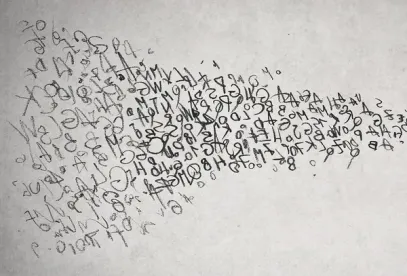2018 Mid-Term Elections, Telecommunications Policy and FCC
As the new Majority Party in the House of Representatives, Democrats will take the gavels as Chairmen of House Committees and Subcommittees as the 116th Congress convenes in January. The House Energy and Commerce Committee and its Subcommittee on Communications and Technology have jurisdiction over the FCC and telecommunications issues, including broadband. The current Ranking Member, Representative Frank Pallone (D-NJ), is expected to become the Committee Chair. Based on recent statements, the House Energy and Commerce Committee is expected to take a more active role in FCC oversight under the new Chairman.
The current Chairman of the House Subcommittee on Communications and Technology, Representative Marsha Blackburn (R-TN), was elected to the Senate, replacing retiring Senator Bob Corker (R-TN). As Chairman, Representative Blackburn was a strong supporter of recent FCC decisions, including the Restoring Internet Freedom Order (Vol. XV, Issue 24), the recent 3.5 GHz Order (Vol. XV, Issue 44), and other policies promoting 5G. By contrast, the Ranking Member on the Subcommittee, Representative Mike Doyle (D-PA) who ran unopposed in the Pennsylvania’s new District 18 (Pittsburgh and surrounding areas), introduced a Joint Resolution under the Congressional Review Act to overturn the FCC’s Restoring Internet Freedom Order. In order to bring the resolution to the House floor for a vote, the discharge petition must have 218 signatures; the discharge petition for this item currently has 177. If the discharge petition does not receive the required signatures by the end of the year, then this item will fail. In the next Congress, Democrats may attempt to reverse the policies in the Restoring Internet Freedom Order through regular order since the CRA will no longer be an option.
While we expect the House to increase oversight over the FCC, the Senate will continue to support the Republican-led FCC’s agenda. The Republicans have maintained their majority in the Senate, the size of which depends on a few close races still being counted. One item of unfinished business is a Senate vote on the President’s nominee for the second Democratic Commissioner Geoffrey Starks. Reportedly, the Senators from Alaska have placed a “hold” on his nomination in order to secure FCC action on telemedicine issues impacting their state. A Senate vote on the nomination is expected before year-end.
FCC Urged to Adopt New Rule for TVWS Spectrum
On November 2, Connect Americans Now, a group of forty-four companies and organizations engaged in technological development and rural broadband expansion, submitted an ex parte letter urging the Commission to issue a Further Notice of Proposed Rulemaking (FNPRM) in the FCC’s TV White Space (TVWS) docket (Vol. XIV, Issue 35). Specifically, the entities requested that the FCC propose: “(1): Higher power for fixed devices in rural areas where [they] can operate without causing harmful interference to broadcasters; (2) Antenna placement at larger heights above average terrain governed by a new protection mechanism; (3) Narrowband IoT operations to support important applications such as precision agriculture and environmental sensing; and (4) Geofenced operation on moving vehicles.” The organizations included in Connect Americans Now use TVWS technology to deliver broadband in rural areas.
FCC to Review Wireless Resiliency Framework Post-Hurricanes
In light of recent hurricanes, FCC Chairman Pai launched a review of the Wireless Resiliency Cooperative Framework, a voluntary wireless industry commitment to promote resilient wireless communications and situational awareness during disasters. The FCC Public Safety and Homeland Security Bureau also sent letters to participating carriers, asking for information on how the Framework has been implemented in prior disaster events. Chairman Pai explained that reexamination of the framework is necessary to make sure carriers are quickly and effectively restoring service to communities struck by natural disasters, including Hurricane Michael.
Business Data Services Second FNPRM
Last month, the Commission adopted a Report and Order and Second Further Notice of Proposed Rulemaking and Further Notice of Proposed Rulemaking (FNPRM) regarding business data services (BDS). In April, the Commission sought comment on adjusting treatment of BDS for rate-of return carriers so that it is more similar to the approach for price cap carriers, and the Order provides an opportunity for rate-of-return carriers to do this. The Second FNPRM proposes to eliminate ex ante pricing regulation of price cap carriers’ TDM-based transport services in response to a remand from the Eighth Circuit. The FNPRM seeks comment on the appropriate regulatory treatment of electing carriers’ TDM-based transport services. Comments are due 45 days after the item is published in the Federal Register.
FCC Calls on Industry to Combat Robocalls
In furtherance of industry efforts to combat illegal spoofed scam robocalls, the FCC called upon network voice providers last week to trace robocalls originating on or passing through those providers’ networks. The FCC sent letters to providers not participating in these “traceback efforts,” including those that the FCC has already urged to increase guards against illegal traffic. Additionally, the FCC encouraged companies accepting overseas traffic to guard against unlawful spoofing, as required by RAY BAUM’s Act (Vol. XV, Issue 40; Vol. XV, Issue 39).







 />i
/>i

